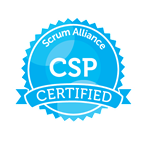Course Overview
Course will cover the Scrum framework but more
importantly, what it means to function as the business analyst, or customer,
for a scrum team. Participant will learn about managing stakeholders, creating
and refining the Product Backlog, emerging detail with Product Backlog Items
and User Stories including Acceptance Criteria and the Definition of Done and
Definition of Ready. Course will have many exercises, in-depth discussion, case
studies and techniques to help illustrate practices and principles. This workshop is for project managers, business analyst (BA), product owner, product manager and member of product management team.
Learning Outcome
Understanding
of Agile and Scrum
Practical
knowledge of Scrum Framework and role of business analyst in Scrum
How to
capture product ideas in a Product Vision Statement
How to
write appropriate Product Backlog Items, which outline deliverable value for
the
product
How to
define Product Roadmap and Releases to aid in Product Lifecycle planning
Product
and project budgeting in Scrum
Techniques
for collaborating and interacting with the Development Team to ensure better
understanding of requirement.
Day -1
Scrum Basics
Understand
the Scrum Framework, the core components of the Scrum framework, Roles,
Ceremonies, Agreements and Artifacts
Understand
the principles of empirical process control and how to practice it through
simulation
Create
work culture that helps in maximizing business value
Roles & Responsibilities
Understand
the role of the Product Owner, proxy product owner and business analyst in
detail
Understand
why product mindset and not project mindset
Product Vision
Understand
the importance of having the product vision as an overarching goal galvanizing
the
entire Scrum team
Develop
Product Vision using real case study
Understand
the desirable qualities of the vision and how it can be shaped
Understand
the importance of carrying out just enough prep work
Practice
Impact Mapping to define product vision and roadmap
Understand
the relationship between vision and product roadmap
Day -2
Product Backlog
Understand
what the product backlog and PBIs
Understand
product backlog Refinement
Writing
effective PBIs
Slicing
PBIs using best practices like INVEST
Identification
of MVP (minimum viable product)
Keeping
product backlog in DEEP status
Prioritization
Understand
the importance and benefits of prioritizing the product backlog
Understand
the implications of saying everything is mandatory
Understand
who should have input into prioritization decisions
Learn
prioritization techniques such as MoSCoW and Kano
Understand
how much latitude to give a team in adjusting the sequence of work
Estimating
Understand
the different estimation levels in Scrum
Practice
estimation techniques
Understand
that estimates of size and duration can be done separately
Understand
the difference between estimating and committing
Day -3
Release Management
Understand
the goals and how to of release planning
Understand
that planning is adaptive, iterative and collaborative
Understand
why software should be released early and frequently
Understand
and measure velocity to forecast
Understand
release burndown charts
Understand
how a release plan can help predict the future
Acceptance Test Driven Development/Behavior Driven Development
Understand
how to write testable acceptance criteria
Understand
the importance of automation in scrum
How to
automate acceptance test
Learn
Gherkin language to write feature file

